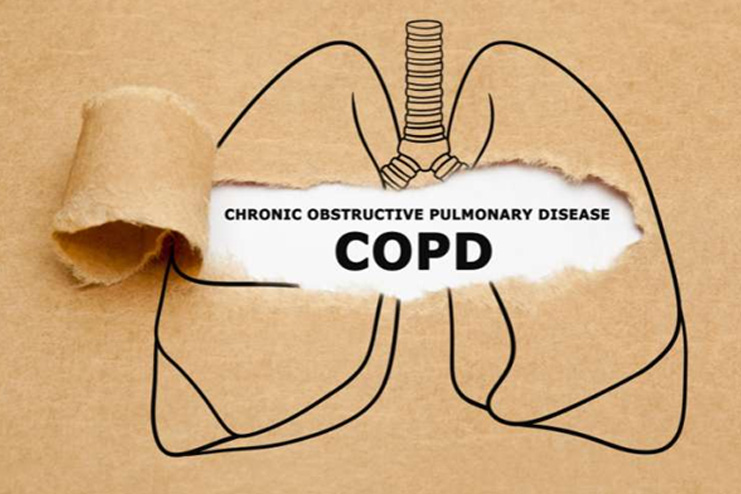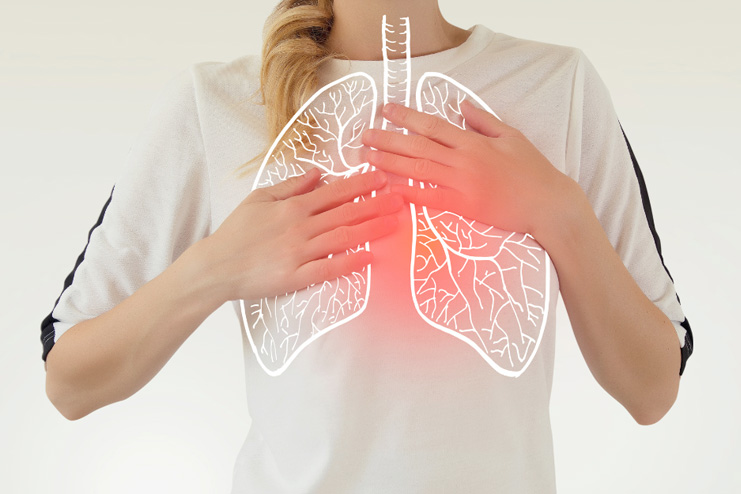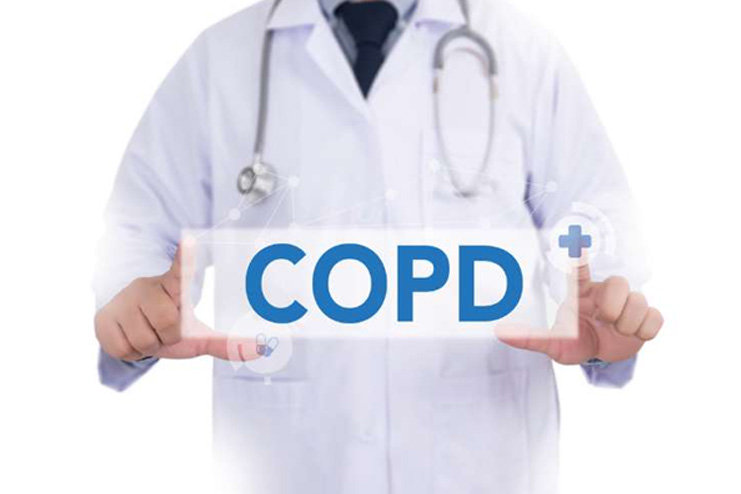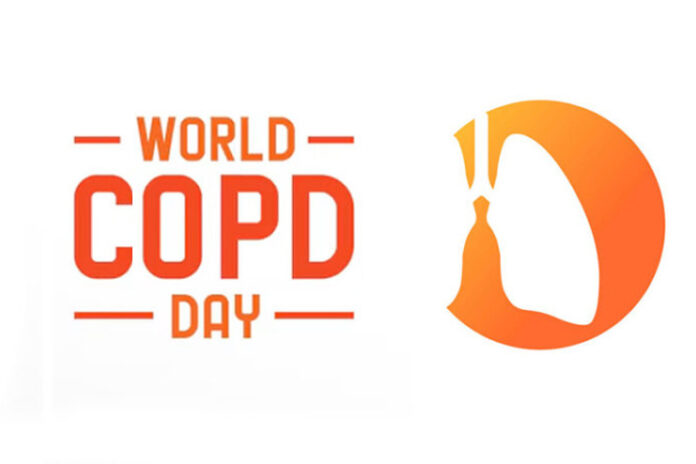Affiliate Disclaimer
Some links in this article are affiliate links. We may earn a small commission if you make a purchase through these links, at no extra cost to you. We only recommend products we find useful to our readersWorld COPD Awareness Day, held on November 20, raises awareness about Chronic Obstructive Pulmonary Disease, uniting communities, medical experts, and patients. Organized by the Global Initiative for Chronic Obstructive Lung Disease (GOLD) in collaboration with patient organizations, the event aims to increase awareness, share knowledge, and discuss strategies to combat COPD worldwide.
In 2019, 3.23 million people died from chronic obstructive pulmonary disease (COPD), making it the third most common cause of death globally. Low- and middle-income nations account for nearly 90% of COPD deaths among people under 70. Globally, COPD ranks as the seventh most common cause of ill health.
With millions of COPD cases diagnosed annually, this condition remains a major public health concern, particularly in areas with poor air quality and high smoking rates. World COPD Awareness Day plays a vital role in addressing this issue by promoting research, sharing patient stories, and spreading knowledge to break the stigma.
This article delves into COPD’s symptoms, triggers, and prevention strategies while highlighting the importance of support groups and global campaigns in improving the quality of life for those affected.
What is COPD?
COPD, or Chronic Obstructive Pulmonary Disease, is a progressive, long-term illness that affects the lungs. Its symptoms include trouble breathing, coughing up a lot of mucus, chest tightness, and shortness of breath. Since COPD is a progressive illness, its symptoms can make it difficult to perform daily tasks like walking, cooking, or self-care if you have severe COPD.
The idea that COPD exclusively affects smokers is a common misconception. Many people with COPD have never smoked, even though smoking is one of the leading causes. Long-term exposure to dust, air pollution, and some genetic factors are additional causes. Furthermore, even though it can affect adults of all ages, COPD is frequently mistakenly regarded as an “older person’s disease.”
Symptoms of COPD Flare-Ups

Flare-ups can be an irregular and upsetting aspect of life for people with COPD. A flare-up, sometimes called an exacerbation, happens when symptoms unexpectedly get worse and need to be treated immediately to avoid complications.
Recognizing the early warning signs of a flare-up can be essential to managing the condition and seeking prompt medical attention.
Listed below are some common symptoms of a COPD Flare-Up:
- Increased Shortness of Breath: If you find that you are having more difficulty breathing than normal, even when you are sleeping or not doing much, this could be a sign of a flare-up.
- Variations in the Color or Consistency of Mucus: Observe your mucus for any changes. If it thickens, becomes more difficult to cough up, or turns green, yellow, or brown, it may indicate an infection or inflammation and cause a flare-up.
- Persistent Cough: A flare-up frequently accompanies a worsening, persistent cough that doesn’t seem to disappear. It could indicate that your lungs are exerting more effort to expel irritants.
- Increased Fatigue: Even after resting, feeling abnormally exhausted or depleted may indicate your body is having trouble. Your lungs’ reduced efficiency during a flare-up results in less oxygen getting to your muscles, exacerbating fatigue.
Triggers of COPD Flare-Ups

Controlling COPD flare-ups can be difficult, and knowing what causes them is key to preventing and managing unexpected episodes. For people with COPD, recognizing and avoiding these triggers can help them maintain more regular breathing patterns and enhance their general quality of life.
Common COPD Triggers:
- Environmental Factors: Sudden weather changes, high temperatures, and air pollution can irritate the airways, making breathing more difficult. Heat waves, cold air, or high humidity can all cause symptoms to worsen rapidly.
- Respiratory Infections: For a person with COPD, even a minor cold can become life-threatening. Increased inflammation and mucus production are common side effects of bacterial or viral infections, which may worsen symptoms.
- Allergens: Mold, dust, pollen, and pet dander can trigger allergies in certain people.
- Smoking and Secondhand Smoke: Although smoking is the biggest trigger for people with COPD, secondhand smoke exposure can be equally harmful.
- Chemicals and Sprays: Perfumes, hair sprays, scented candles, air fresheners, cleaning supplies, and paints can all worsen COPD. If scented body products cause a reaction, avoid using them and instead use natural, non-toxic cleaning products.
Preventing COPD Flare-Ups

Preventing COPD flare-ups is all about intelligent, proactive management. People with COPD can reduce the frequency and intensity of these upsetting episodes by controlling environmental factors and adopting thoughtful lifestyle changes. Minor lifestyle adjustments can greatly impact managing COPD.
- Aerobic Exercise: Breathing becomes more manageable with regular, moderate exercise that strengthens the respiratory muscles.
- Stop Smoking: Without a doubt, the best way to lessen the flare-ups and slow the progression of the disease is to stop smoking.
- Immune Boosting Foods: Keeping the immune system robust and eating a balanced diet lowers the risk of respiratory infections.
- Hydration: Drinking lots of water to stay hydrated can help thin mucus, making removing it easier.
- Stress Reduction: Furthermore, stress-reduction methods like yoga, meditation, or breathing exercises can enhance mental health and assist in symptom management during trying times.
People with COPD can regain control, reduce flare-ups, and breathe a little easier each day by implementing these strategies.
Support Groups and Resources

Although having COPD can be daunting, you don’t have to go through it alone. Resources and support groups assist patients to cope with the mental, emotional, and physical difficulties associated with the illness. In addition to information, these communities offer a sense of belonging, shared experiences, and support.
Patients with COPD can join a variety of online and local support groups. Online communities, like Community COPD360social from the COPD Foundation, give patients, caregivers, and medical professionals a place to interact and exchange ideas. Regular in-person meetings may also be held at nearby clinics and hospitals, allowing patients to interact with others in person, participate in educational programs, and hear from outside speakers.
Prominent medical associations such as the American Lung Association and the COPD Foundation provide extensive resources that can help patients better manage their illness. The COPD Foundation’s website offers informational resources, the most recent research findings, and even online tools for symptom tracking.
Using these resources and support groups, people with COPD acquire information, friendship, and the courage to take charge of their health journey, one breath at a time.
Campaigns for COPD Awareness
World COPD Awareness Day is a worldwide call to action rather than merely a date on the calendar. Each year, nations unite to raise awareness, reduce stigma, and improve lives. GOLD selects a theme every year and plans to develop and spread resources and materials for World COPD Day.
World COPD Day in 2024 theme is “Know Your Lung Function,” to emphasize the value of spirometry or the measurement of lung function. Spirometry is a crucial diagnostic tool for COPD but can assess lung health throughout a person’s lifetime.
Public seminars, webinars, and significant health fairs offering free lung function tests are just a few of the events to educate people about COPD prevention, early diagnosis, and effective management. These programs show that raising awareness requires action, teamwork, and hope for the future.
Conclusion
Understanding COPD and its triggers is crucial to managing it effectively and enhancing the quality of life. Patients and caregivers are better equipped to spot early warning signs, take preventative action, and react quickly to flare-ups when they are aware.
Those impacted can live longer, more active lives with the correct approaches, whether they involve lifestyle changes, medical interventions, or community support. Even though living with COPD can be difficult, proactive care, support, and education can make a big difference.
References
- https://goldcopd.org/world-copd-day-2024
- https://www.nhlbi.nih.gov/health-topics/education-and-awareness/copd-learn-more-breathe-better/copd-awareness-month
- https://www.awarenessdays.com/awareness-days-calendar/world-copd-awareness-day-2024
- https://www.pacehospital.com/world-copd-day
- https://www.copdfoundation.org/Take-Action/Get-Involved/COPD-Awareness-Month.aspx
- https://www.nhlbi.nih.gov/health/copd
- https://www.who.int/news-room/fact-sheets/detail/chronic-obstructive-pulmonary-disease-(copd)
- https://my.clevelandclinic.org/health/diseases/8709-chronic-obstructive-pulmonary-disease-copd
- https://www.webmd.com/lung/copd/what-is-a-copd-flare-up
- https://medlineplus.gov/ency/patientinstructions/000698.htm
- https://www.breztri.com/copd/flareups
- https://www.lung.org/lung-health-diseases/lung-disease-lookup/copd/living-with-copd/prevent-flare-ups
- https://www.umms.org/bwmc/health-services/pulmonary-disease/copd/symptoms-triggers/common-triggers
- https://www.healthline.com/health/avoiding-copd-triggers
- https://www.healthline.com/health/copd/steps-for-managing-copd-flare
- https://www.healthline.com/health/copd/how-to-prevent-copd
- https://health.clevelandclinic.org/copd-exacerbation
- https://pmc.ncbi.nlm.nih.gov/articles/PMC9528742
- https://www.lung.org/lung-health-diseases/lung-disease-lookup/copd/finding-support
- https://www.copdfoundation.org/COPD360social/Community/Get-Involved.aspx
- https://www.copdfoundation.org
- https://www.lung.org/lung-health-diseases/lung-disease-lookup/copd/finding-support
- https://goldcopd.org
- https://goldcopd.org/world-copd-day-2024
In this Article

















